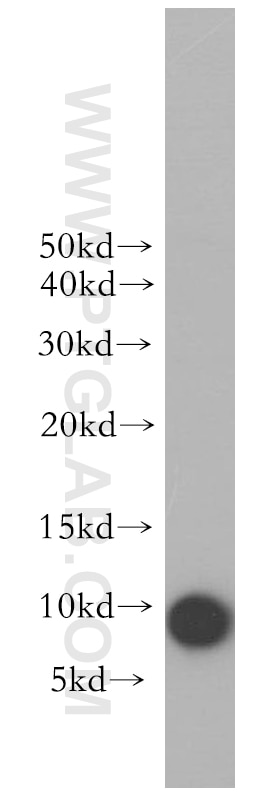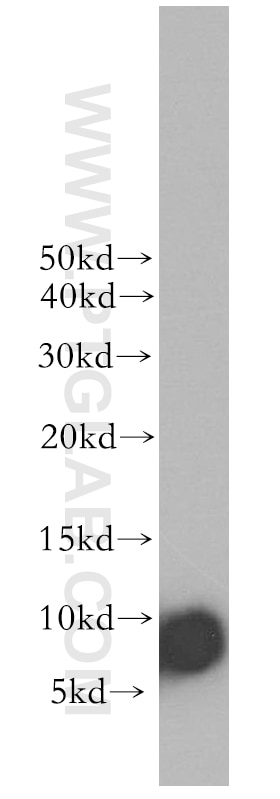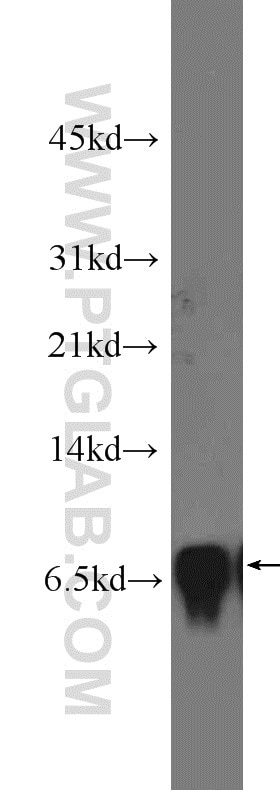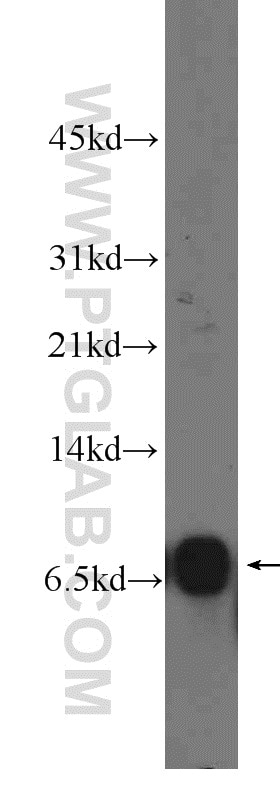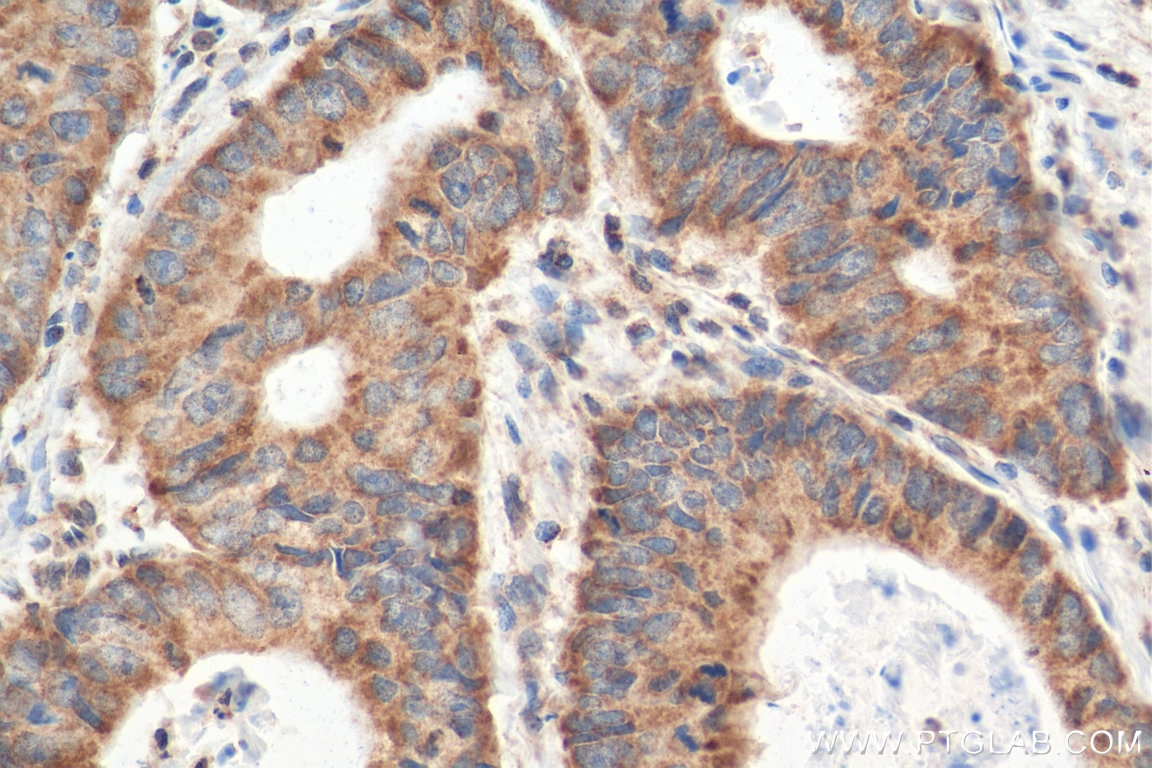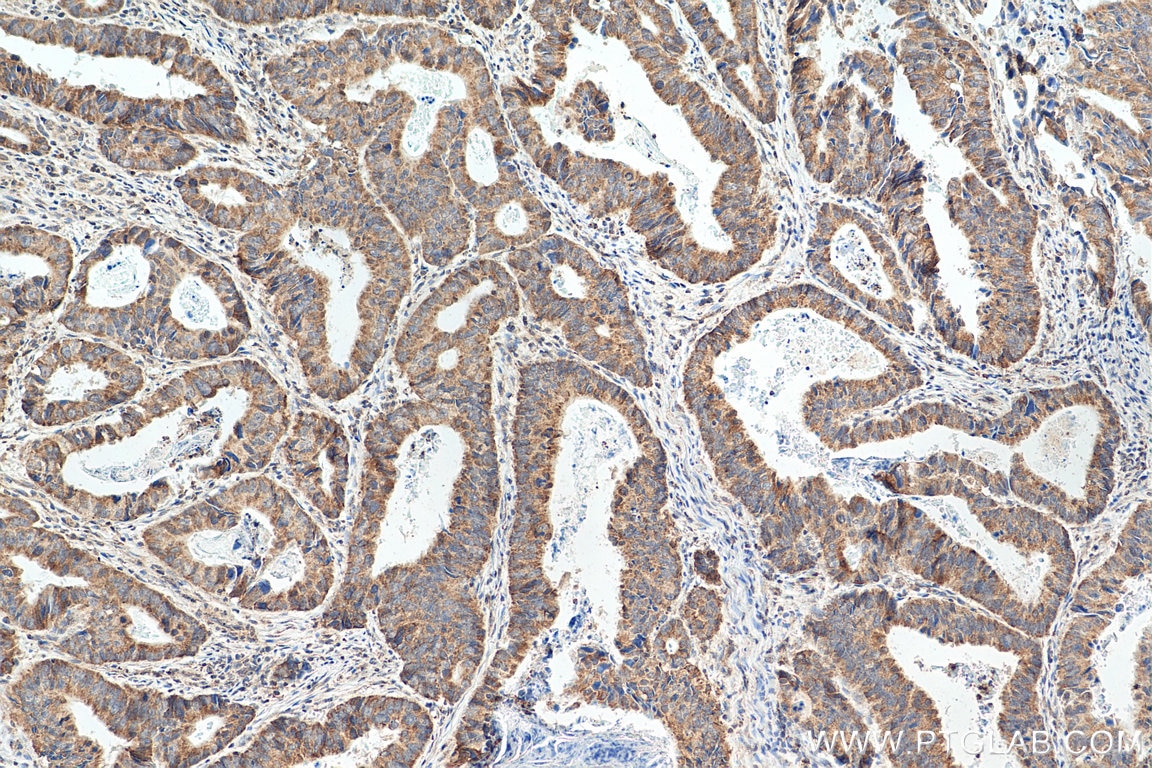Anticorps Polyclonal de lapin anti-CCL28
CCL28 Polyclonal Antibody for WB, IHC, ELISA
Hôte / Isotype
Lapin / IgG
Réactivité testée
Humain, souris et plus (1)
Applications
WB, IF, IHC, ELISA
Conjugaison
Non conjugué
N° de cat : 18214-1-AP
Synonymes
Galerie de données de validation
Applications testées
| Résultats positifs en WB | tissu splénique humain, cellules Jurkat, cellules PC-3, tissu splénique de souris |
| Résultats positifs en IHC | tissu de cancer du côlon humain, il est suggéré de démasquer l'antigène avec un tampon de TE buffer pH 9.0; (*) À défaut, 'le démasquage de l'antigène peut être 'effectué avec un tampon citrate pH 6,0. |
Dilution recommandée
| Application | Dilution |
|---|---|
| Western Blot (WB) | WB : 1:500-1:1000 |
| Immunohistochimie (IHC) | IHC : 1:50-1:500 |
| It is recommended that this reagent should be titrated in each testing system to obtain optimal results. | |
| Sample-dependent, check data in validation data gallery | |
Applications publiées
| WB | See 2 publications below |
| IHC | See 4 publications below |
| IF | See 1 publications below |
Informations sur le produit
18214-1-AP cible CCL28 dans les applications de WB, IF, IHC, ELISA et montre une réactivité avec des échantillons Humain, souris
| Réactivité | Humain, souris |
| Réactivité citée | rat, Humain, souris |
| Hôte / Isotype | Lapin / IgG |
| Clonalité | Polyclonal |
| Type | Anticorps |
| Immunogène | CCL28 Protéine recombinante Ag12920 |
| Nom complet | chemokine (C-C motif) ligand 28 |
| Masse moléculaire calculée | 127 aa, 14 kDa |
| Poids moléculaire observé | 8 kDa-9 kDa |
| Numéro d’acquisition GenBank | BC069532 |
| Symbole du gène | CCL28 |
| Identification du gène (NCBI) | 56477 |
| Conjugaison | Non conjugué |
| Forme | Liquide |
| Méthode de purification | Purification par affinité contre l'antigène |
| Tampon de stockage | PBS avec azoture de sodium à 0,02 % et glycérol à 50 % pH 7,3 |
| Conditions de stockage | Stocker à -20°C. Stable pendant un an après l'expédition. L'aliquotage n'est pas nécessaire pour le stockage à -20oC Les 20ul contiennent 0,1% de BSA. |
Informations générales
CCL28, also named as SCYA28, CCK1 and MEC, belongs to the intercrine beta (chemokine CC) family. It has chemotactic activity for resting CD4, CD8 T-cells and eosinophils. CCL28 binds to CCR3 and CCR10 and induces calcium mobilization in a dose-dependent manner. CCL28 is expressed in a variety of human and mouse tissues, and it appears to be predominantly produced by epithelial cells. It is produced by epithelial cells of these tissues suggesting that this chemokine can play an important role by linking homing mechanisms between the gut, nasal mucosa and mammary gland (MG). In WB test, CCL28 is 14kd and 8-9kd(a putatively to a degradation fragment).
Protocole
| Product Specific Protocols | |
|---|---|
| WB protocol for CCL28 antibody 18214-1-AP | Download protocol |
| IHC protocol for CCL28 antibody 18214-1-AP | Download protocol |
| FC protocol for CCL28 antibody 18214-1-AP | Download protocol |
| Standard Protocols | |
|---|---|
| Click here to view our Standard Protocols |
Publications
| Species | Application | Title |
|---|---|---|
Oncol Rep CCL28 promotes breast cancer growth and metastasis through MAPK-mediated cellular anti-apoptosis and pro-metastasis. | ||
Mol Med Rep Knockdown of CCL28 inhibits endometriosis stromal cell proliferation and invasion via ERK signaling pathway inactivation | ||
Int Immunopharmacol IL-17D affects the chemokines and chemokine receptors of intestinal epithelial cells under hyperoxia | ||
Transl Oncol Transcriptionally activates CCL28 expression to inhibit M2 polarization of macrophages and prevent immune escape in colorectal cancer cells | ||
Cancer Res CCL27/CCL28-CCR10 CHEMOKINE SIGNALING MEDIATES MIGRATION OF LYMPHATIC ENDOTHELIAL CELLS. |
